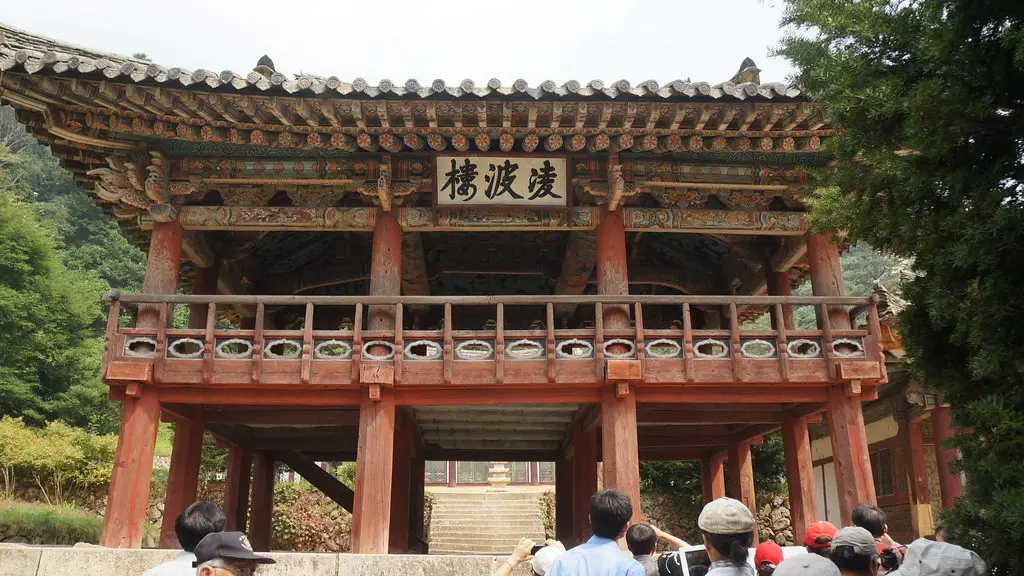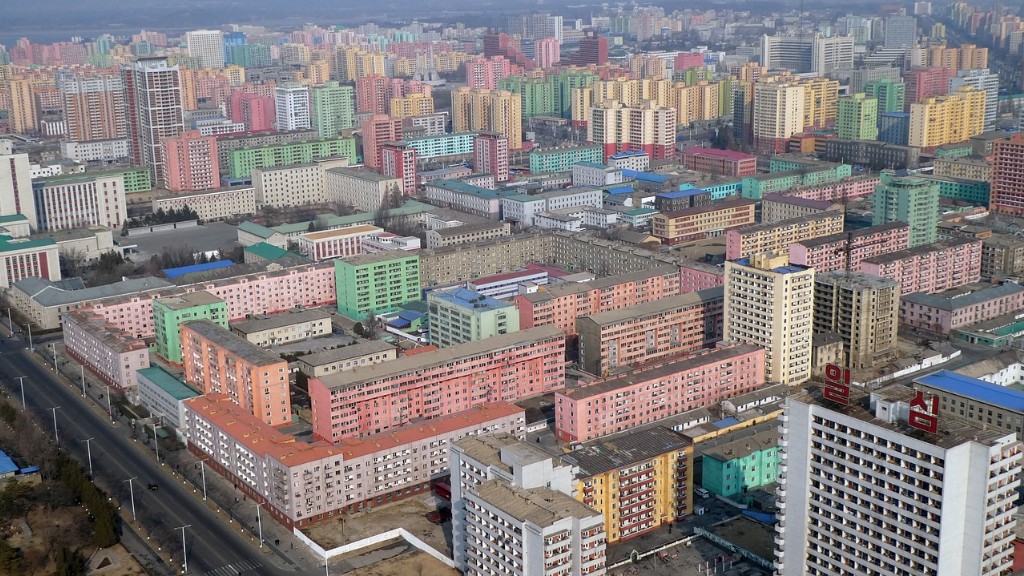Critiques of the Government in North Korea
The Republic of North Korea, commonly referred to as North Korea, has been run by the authoritarian regime of Kim Jong Un and his Korean Workers’ Party since 2011. The state has experienced one of the most oppressive, totalitarian regimes in the world over the past two decades. North Korea is one of the last remaining countries in the world still under a controlled, single-party governed state. Under this rule of law, many of the freedoms that citizens in other countries take for granted, such as freedom of the press, the right of free expression, and a free economy, are not available in North Korea.
The Kim regime continues to build a nuclear arsenal and ballistic missile delivery systems, despite severe international criticism. In 2017, when US President Donald Trump threatened a “fire and fury” attack on North Korea in response to its missile tests, the world found itself on the brink of a nuclear war. The danger has subsided since then, and the two countries have recently made some progress in the diplomatic realm by signing an agreement for denuclearisation of the Korean peninsula.
However, the citizens of North Korea still suffer under the oppressive rule of the Kim regime. The government has been accused of various human rights abuses, such as using torture and forced labor, not providing adequate nutrition and healthcare, and preventing freedom of expression. In 2019, over a hundred people were arrested and sentenced by the North Korean courts for openly speaking out against the government. The North Korean economy is heavily reliant on external aid and is failing, with citizens living in poverty and facing frequent food shortages.
Experts suggest that the only way to make real and sustainable progress in North Korea is to move away from a purely punitive approach to the diplomatic realm, and instead focus on offering North Korea an opportunity for economic investments and greater regional integration. This would provide the nation with access to a more robust global marketplace, allowing citizens to have a voice in their own economic destinies.
Despite the dire situation in North Korea, activists and groups remain committed to raising awareness of the human rights abuses taking place in the country. International organisations such as Amnesty International and Human Rights Watch have helped to bring attention to the issue and advocate for improvement in the country. They have helped to pressure world governments to take action and put growing pressure on the Kim regime to take steps to address the human rights crisis in North Korea.
The Tool of Sanctions
The international community has responded to the North Korean situation by imposing sanctions on some North Korean officials and businesses to limit the Kim regime’s access to financing and resources. The international community has also held dedicated negotiations and summits to outline a possible path forward and put pressure on the North Korean government to begin to adhere to International Law.
In 2017, the United Nations Security Council (UNSC) passed a series of resolutions limiting North Korea’s access to financing and resources as punishment for their nuclear and missile program. This included a cap on imports of fuel and a ban on the export of weapons, among other measures. The sanctions imposed have had a dramatic effect on the North Korean economy, leading to a significant drop in the amount of money North Korea receives via imports and exports, as well as a decrease in resources needed to build and maintain their nuclear and missile programs.
The sanctions have also had a profound impact on the ordinary citizens of North Korea. The people are struggling to make ends meet due to the shortages in basic necessities, including food, medicine, and other essential items. Many of the people are also forced to live in a state of poverty due to the collapsing currency and job market.
As a result of the sanctions, non-governmental organisations have stepped in to provide humanitarian assistance to those in need. This includes providing food, medicine, and other basic necessities for those who are struggling the most. These organisations often go to great lengths to bypass the sanctions and get the aid to their intended target. This includes smuggling contraband items over the border or using cash instead of using credit cards or other traditional forms of payment.
Despite the United Nations efforts, many have called for further action to be taken to end the human rights abuses in North Korea. In 2018, the UNSC passed a resolution condemning the human rights abuses taking place in North Korea and calling for action to be taken to improve the situation. This resolution, along with other international documents, has raised global awareness of the plight of the people in North Korea.
Changing Times?
Recently there have been some tentative signs of hope in North Korea. For the first time, North Koreans were able to access the internet and watch western films and television programmes. There were also reports of North Koreas attempting to open their own businesses, even if they were small ones.
Perhaps the most encouraging sign has been the growing thaw in the relationship between North Korea and the United States. After years of antagonism, the countries recently managed to sign an agreement for denuclearisation and are engaging in fruitful exchanges in various fields. Activists and government representatives from both countries have also been successful in discussing human rights and the progress made in humanitarian aid to North Korea.
These developments have led to optimism that North Korea could soon turn a corner and work towards a more open and transparent government. Experts suggest that the best way to achieve this is by providing economic incentives to the citizens of North Korea, as well as offering access to higher quality education and information about the outside world.
Cultural Development
As part of this progress, North Koreans have begun to challenge the regime’s policy of isolating them from the outside world. North Korean citizens have begun to access the internet and are able to communicate with the outside world through social media.
In 2019, a North Korean defector launched an online platform called ‘JoonAngTalk’ that allowed North Korean citizens to anonymously exchange messages and views with the outside world. The website has also been used by North Korean citizens to share their perspectives and experiences, as well as to voice their opinions on the current regime.
The platform has garnered much attention in the international media, giving North Korean citizens an unprecedented platform to express their opinions and experiences. The platform has enabled North Koreans to raise awareness about the living conditions in their country and the abuses the citizens have to endure. It is hoped that this will help to increase the pressure on the government to take steps to improve the lives of its people.
Decision of the Government
The North Korean government has for long resisted any attempts to liberalise society, but in 2018 it began to relax some of its restrictions on foreign businesses entering the country and experimenting with new economic policies. These changes have led to an increase in foreign investment and some businesses have started to benefit from the improving economic climate.
Despite this, North Koreans still face severe restrictions in terms of their freedom of expression and political rights, and the government is still hesitant to open up society to greater scrutiny. However, the changing international environment and North Korean citizens’ increasing access to the internet seems to have made the government more willing to consider a more liberal approach to governing.
Promising Prospects?
North Koreans are still facing significant challenges in terms of poverty, food shortages, and human rights abuses. However, the recent developments suggest that change might be on the horizon. It is hoped that the international community will take note of the progress that has been made, and that North Koreans will be given the opportunity to exercise their basic rights under the law, and have a say in their own economic destinies.
International Help
The international community can play a major role in supporting North Korea to move towards more democratic and transparent policies. Other nations can extend economic and political assistance to North Korea and put pressure on the government to end human rights abuses and move towards a more open and accountable government. This could provide North Koreans with greater access to resources and the basic freedoms denied them for so long.
At the same time, it is important to remember that, despite the progress that has been made, North Korea is still one of the most isolated countries in the world and robust international intervention is still needed to ensure that the country does not slide back into a more oppressive and isolating state.
Relationships and Diplomacy
North Korea’s recently improved relationship with the United States and other countries has been an important factor in promoting greater diplomatic engagement. The US has proposed denuclearisation talks, and the two sides have recently held discussions on nuclear and security issues.
The two sides have also held summits and exchanged high level diplomats and officials. The change in attitude on both side is encouraging, and there is a sense that a lasting peace deal could be close. The two countries have also been engaging in dialogue on how to improve human rights in North Korea, and this could potentially be a breakthrough towards changing the regime and the human rights abuses in the country.
Worldwide Attention
The international media has also been playing an important role in raising awareness of the situation in North Korea and putting pressure on the Kim regime to address human rights abuses and provide economic opportunities for its citizens. The media has highlighted the plight of North Koreans and put pressure on governments around the world to take steps to pressure the Kim regime to improve the lives of its people.
The international media has also been instrumental in shining a light on the progress made in North Korea and bringing attention to the difficult situation the citizens still face. The attention the issue has gained in the media has been a factor in encouraging world governments to take steps to help the citizens get access to basic rights and economic opportunities that are often denied them. This media pressure has been key in allowing progress to be made in the diplomatic sphere and leverage real world changes in North Korea.


